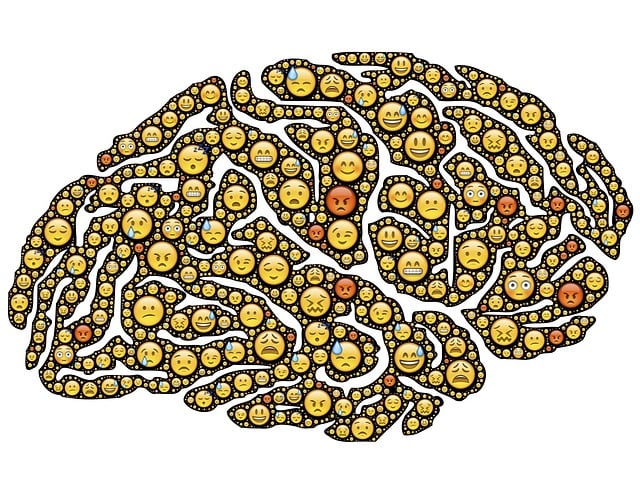Louisville Russian Speaking Therapy (RST) provides a unique, holistic approach to mental health care for individuals whose first language is Russian, focusing on building resilience through the RFM model. Leveraging self-awareness exercises, stress reduction techniques, and mental health education, RST equips clients with tools for emotional healing and effective emotion management. This personalized therapy addresses cultural needs, reduces stigma, and promotes long-term mental health stability, emphasizing the importance of culturally sensitive interventions in enhancing well-being.
“Resilience is a powerful tool in navigating life’s challenges, and the RFM (Resilience Factors Measurement) model offers a comprehensive framework to understand and enhance it. This article explores the intricate relationship between resilience and therapy, with a special focus on Louisville Russian Speaking Therapy as a case study. We’ll uncover the benefits of various resilience-building exercises and provide practical tips for integrating these strategies into daily life. By understanding RFM, readers will gain insights into fostering adaptability and perseverance.”
- Understanding RFM: An Overview of Resilience Factors and Measurement
- The Role of Russian-Speaking Therapy in Building Resilience
- Common Resilience-Building Exercises and Their Benefits
- Louisville Russian Speaking Therapy: A Case Study
- Integrating RFM into Everyday Life: Practical Tips for Continuous Growth
Understanding RFM: An Overview of Resilience Factors and Measurement

Resilience is a crucial aspect of mental well-being, enabling individuals to navigate life’s challenges with strength and adaptability. Louisville Russian Speaking Therapy (RST) recognizes the importance of fostering resilience, especially within diverse communities where access to specialized support can be limited. RST offers an innovative approach to enhancing resilience through tailored exercises designed to strengthen individual coping mechanisms.
The RFM model, a cornerstone of RST’s methodology, focuses on three key factors: Resistance, Flexibility, and Mastery. Self-Awareness Exercises play a pivotal role in this process by encouraging individuals to recognize their emotions and thoughts, thus fostering an understanding of personal resilience triggers. By combining these exercises with Stress Reduction Methods, participants learn to manage and reduce the impact of stress, enhancing their overall ability to bounce back from adverse situations. Furthermore, RST’s comprehensive approach integrates Mental Health Awareness, ensuring that individuals not only build resilience but also develop a deeper awareness of their emotional well-being.
The Role of Russian-Speaking Therapy in Building Resilience

Louisville Russian Speaking Therapy offers a unique approach to building resilience and fostering mental wellness. This specialized therapy focuses on the powerful combination of language and psychological support, tailored to meet the needs of individuals with Russian as their first language. By incorporating Mind Over Matter Principles, this therapeutic practice goes beyond traditional talk therapy. It empowers clients to navigate life’s challenges by understanding and managing their emotions effectively.
The process involves delving into one’s experiences and beliefs, allowing for deep emotional healing. Through a series of exercises, patients learn to identify and challenge negative thought patterns, replacing them with healthier alternatives. This holistic approach, often enhanced by the Mental Wellness Podcast Series Production, provides tools for self-care and stress management, ensuring individuals develop the resilience needed to thrive in today’s fast-paced world.
Common Resilience-Building Exercises and Their Benefits

Resilience-building exercises are a vital component of Louisville Russian Speaking Therapy, fostering mental fortitude and emotional agility. Common techniques include mindfulness practices, such as meditation and deep breathing, which help individuals stay grounded in stressful situations, enhancing their ability to manage anxiety and promote calmness. These practices have been shown to improve emotional intelligence—a key aspect of cultural sensitivity in mental healthcare practice, ensuring that therapy is tailored to the unique needs of each individual.
Additionally, cognitive reframing exercises encourage clients to challenge negative thought patterns, replacing them with more positive and realistic perspectives. This not only boosts resilience but also plays a significant role in the design of mental health education programs, empowering individuals to take control of their mental well-being. By integrating these strategies, Louisville Russian Speaking Therapy offers a comprehensive approach to building resilience, catering to diverse cultural backgrounds and fostering long-term mental health stability.
Louisville Russian Speaking Therapy: A Case Study

Louisville Russian Speaking Therapy (LRST) serves as a compelling case study for the power of tailored resilience-building exercises. This therapy program, designed to meet the unique needs of the local Russian-speaking community, goes beyond traditional talk therapy by incorporating cultural relevance and social skills training. By offering a safe space where individuals can connect with their peers and address mental health concerns in their native language, LRST has successfully reduced the stigma surrounding mental illness within this demographic.
The program’s success lies in its holistic approach, combining individual therapy sessions with group support meetings. These activities not only enhance communication and social interaction but also equip participants with practical tools for stress management and burnout prevention. The case study of Louisville Russian Speaking Therapy highlights the importance of culturally sensitive interventions in fostering resilience and improving mental health outcomes, particularly within underserved communities.
Integrating RFM into Everyday Life: Practical Tips for Continuous Growth

Integrating RFM (Russian Speaking Therapy) into your everyday life can be a powerful tool for personal growth and resilience. Louisville Russian Speaking Therapy offers practical methods to enhance mental well-being, which are particularly beneficial in managing stress and building adaptability. By incorporating simple yet effective techniques, individuals can navigate life’s challenges more effectively. For instance, mindfulness exercises and cognitive reframing, core components of RFM, can help shift perspectives during difficult situations, fostering a sense of calm and resilience.
Engaging in regular self-reflection, another aspect of RFM, allows for continuous personal development. This involves regularly assessing one’s thoughts, emotions, and behaviors, which is crucial for identifying areas of improvement and setting achievable goals. Practicing these techniques cultivates mental flexibility, enabling individuals to adapt to changing circumstances, including those that might arise in the dynamic landscape of public awareness campaigns or during advocacy efforts in mental health policy analysis. Moreover, preventing burnout becomes more manageable when equipped with these tools, ensuring long-term engagement in meaningful pursuits like community development initiatives.
In conclusion, Louisville Russian Speaking Therapy (LRST) serves as a powerful example of how integrating RFM—resilience factors measured through specific exercises—into therapeutic practices and daily life can significantly enhance individuals’ coping mechanisms. As discussed throughout this article, understanding resilience, leveraging Russian-speaking therapy techniques, and employing effective exercises contribute to building mental fortitude. By adopting these strategies, people can navigate challenges more effectively, fostering continuous personal growth and improved well-being.














